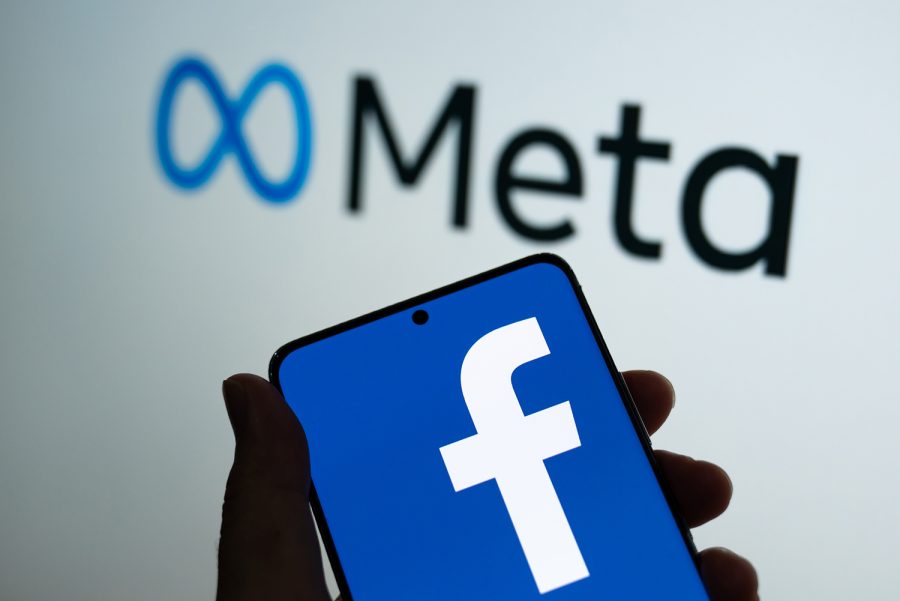Opinion | Is social media good for world politics?
Meta’s exception to violent speech guidelines and the virality of Pro-Ukrainian urban legends reveal the influence of social media in war-time propaganda — and it’s concerning.
Bangkok, Thailand – October 29, 2021: Meta logo is shown on a device screen. Meta is the new corporate name of Facebook. Social media platform will change to Meta to emphasize its metaverse vision.
March 30, 2022
The combative situation between Ukraine and Russian has heightened tensions between Russia and America more than ever before. A month ago during a televised broadcast, Russian President Vladimir Putin issued a grave warning to those who would interfere.
“Whoever would try to stop us, and further create threats to our country, to our people, should know that Russia’s response will be immediate and lead you to such consequences that you have never faced in your history” Putin said in the video.
In the midst of Russian politics and the dire situation in Ukraine, it is important that we mind our Russian brothers and sisters in this country. A sorry fact of history that constantly repeats itself is that people are discriminated against because of the widespread panic following political decisions they were never involved in.
Social media is a very effective way to get messages across when it comes to conflict. However, it can just as easily propel myths and rumor that trivialize conflicts at the same time.
In this age of political discourse, social media titan Meta is showing just how much power its ban-hammers wield — and not by using them, but by letting them down in order to allow users to post, as announced by a spokesperson in a statement, certain violent speech that would otherwise be deemed hate speech and removed.
In essence, pro-Ukraine wartime propaganda is allowed on Facebook against the Russian military. It is important to keep in mind here that the word “propaganda” is to be used in its neutral context — “biased” rather than misleading because the tragic ending of innocent people’s lives can never be understated.
An instance of the alarming effect social media has on discourse that also ties into Ukraine is the viral reach of urban myths that people all over the world have believed in, such as the far-outreaching tweet that supposedly reported on the “ghost of Kyiv,” turning out to be unfounded. Footage claimed to be the ghost of Kyiv in action was actually from a game.
In any media-boosted message, there is a bias with the goal of selling someone a message. An example is the common reasoning for war given by Republicans in the Middle East, who would have spoken sentiments showing the grip oil has on our economy, and the sentiment for our own country to get involved militarily for the sake of “protecting democracy.”
Another hoax regarded the fate of the soldiers that faced Russia on Snake Island. At first, it became a popular story that they told off Russian warships before being killed as a martyr story, which became popular and had even been reported as news in different outlets. In reality, they were taken in, and were just now brought back to Ukraine after a prisoner exchange.
Even as a modern American, I feel as if in the echoes of the 1950s “Red Scare.” Anti-Russian sentiment narratives have become so ingrained into our culture that we easily take many of these stories as true.
Social media only magnifies this issue to its logical extreme that will lead to fatal errors of judgment.
Columns reflect the opinions of the authors and are not necessarily those of the Editorial Board, The Daily Iowan, or other organizations in which the author may be involved.



